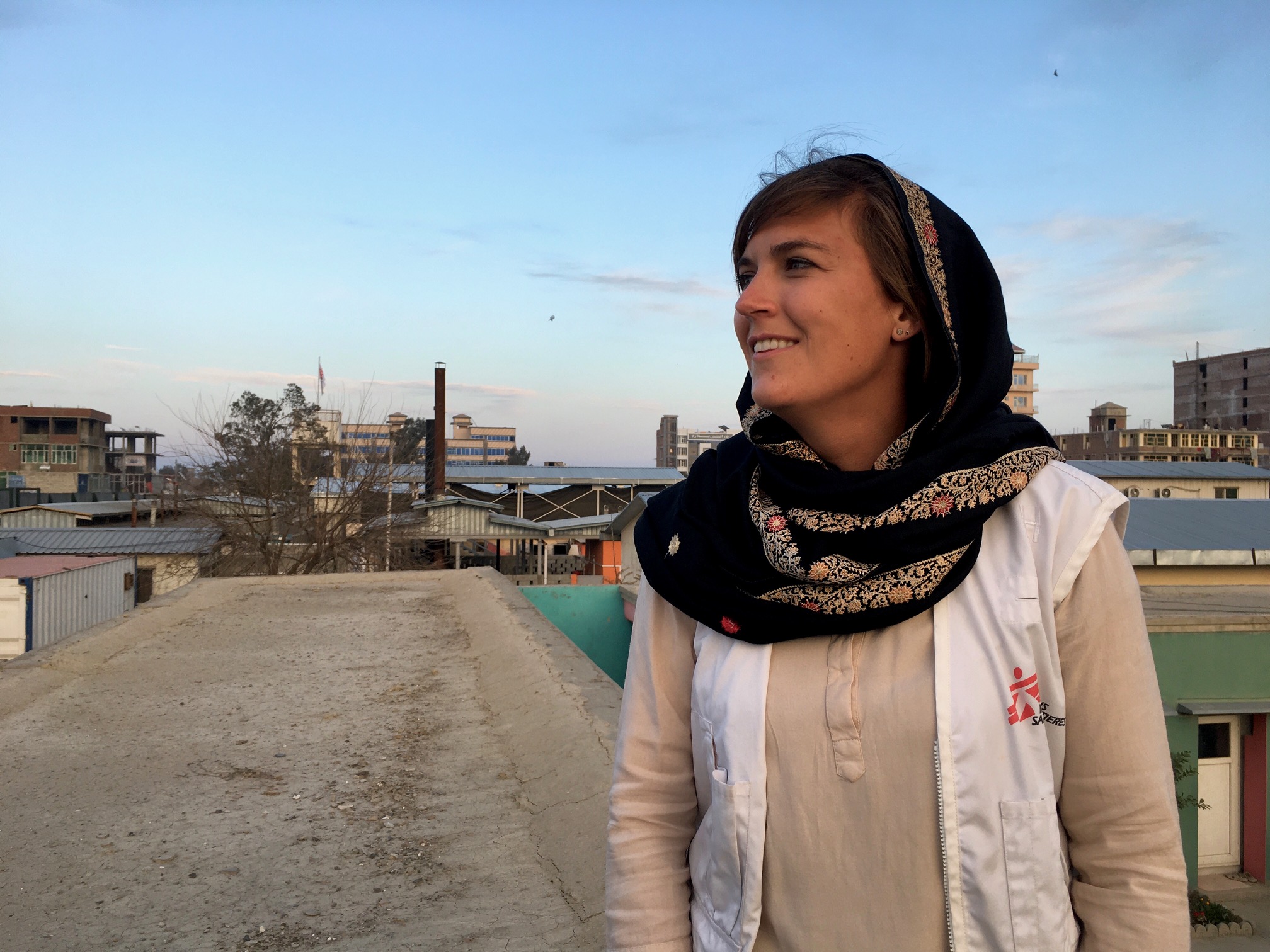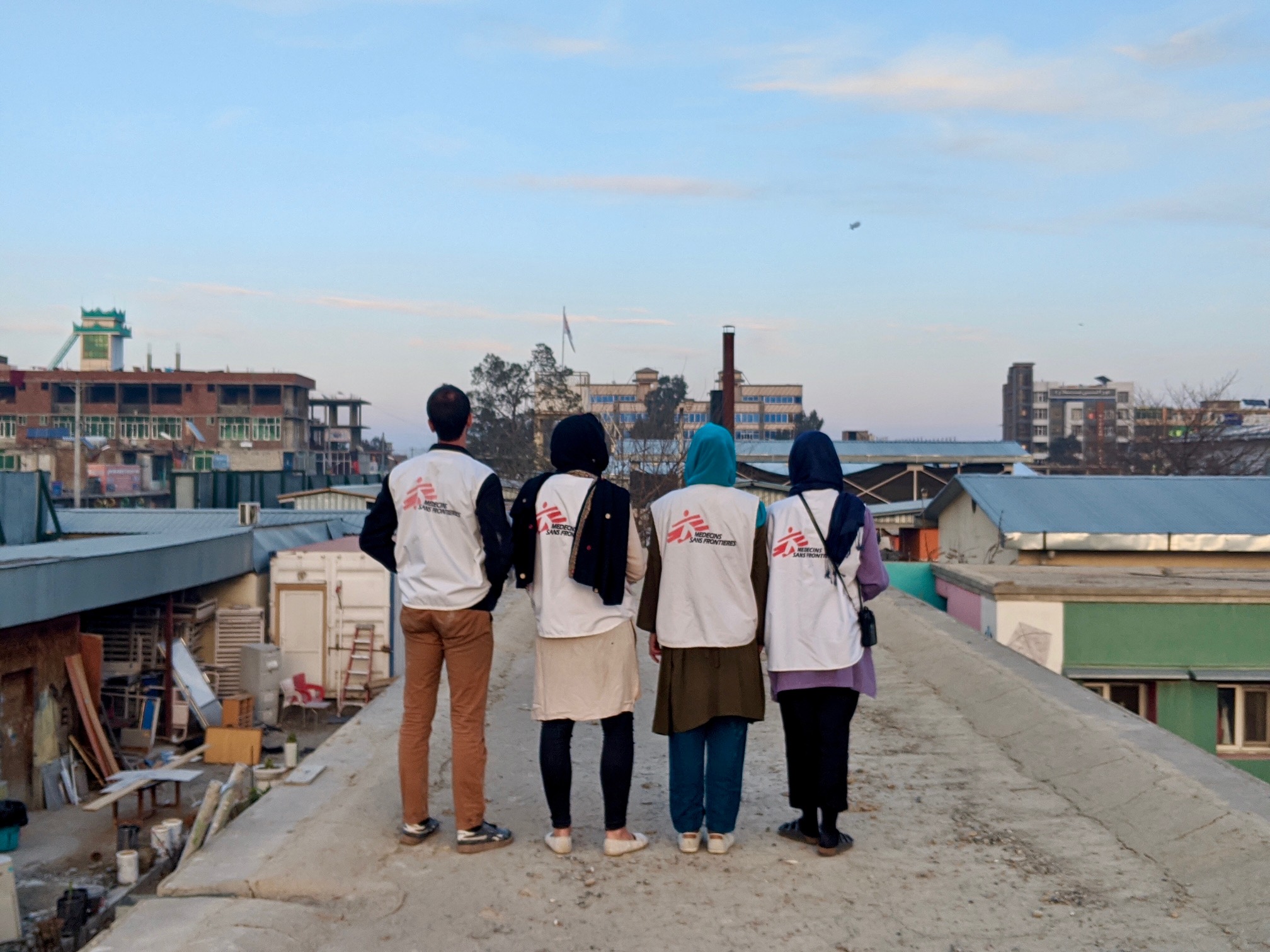Anaesthetist in the field: An experience unlike any other
Sofie has been working as an anaesthetist with Médecins Sans Frontières (MSF) since 2019. Her profession is an essential part of our medical teams in the field and we are constantly looking for this rare profile. We asked her a few questions about life as an anaesthetist in humanitarian circumstances.

How many missions have you done with MSF and in how many countries?
For my first mission, I went to Afghanistan for three months. After that, I was supposed to go to Burundi for 3 months. Unfortunately, the trip was made impossible because of COVID-19, so MSF was able to send me back on a mission to Afghanistan.
Why did you want to work for MSF?
Working in a humanitarian context with MSF was one of my dreams even before I started studying. It's a classic answer, but it was mainly to contribute to a cause that was close to my heart. I also like to explore new horizons and discover other cultures. On the one hand, I wanted to have a positive impact in the world and on the other hand, I wanted to evolve, both professionally and personally.
How did your MSF experience in the field differ from your previous work experience?
In the field, we generally work in a context with less resources, for diagnosis as well as for treatment. The main difference is that you have to rely mostly on clinical examinations, meaning what is visible and how the patient’s body reacts.
Here in Belgium, we have catheters to monitor the patients’ blood pressure, electrocardiograms (ECG), various intravenous infusions to administer medicines for heart and blood pressure, ... All these instruments are often unavailable in the field.
Sometimes, literally all I had was a finger on the patient's wrist to monitor their condition. I would also check the paleness of their eyelids, for example, to be able to assess the blood loss.
Is there a special case or patient that you remember the most?
In Afghanistan, I got the opportunity to work in the largest MSF maternity in the world. One day, I was called to see a patient who developed a fulminant pulmonary edema during childbirth. I had never seen such an extreme case in my life.
We were doing everything we could to stabilise the patient, but we absolutely needed a specific medication which we could not locate. After frantic research, thanks to the cooperation of my team, we found the medicine and from then on, her condition stabilised and we were able to transfer her from the maternity to the hospital. Later, the gynaecologist came to tell us that the patient's family was so grateful that they were praying for the whole team. It was such a beautiful gesture, I will never forget it.

Which unique lessons did you learn while working in the field?
MSF expats generally have a supporting role, and this was also my case. The purpose of my position was to help my team, guide them and make sure they had all the tools to their disposal to be as independent as possible. I learned a lot from this, and I would never have had this experience, so early in my career, without MSF.
I also learned to be flexible. I was used to having all of my patient information on a monitor. If I needed to know more, I could do a CT-scan or an RX exam but in the field, this is often not an option. You have to adapt and be creative, depending on the situation and the resources available.
Thanks to these experiences, I’ve learned to put things into perspective in my personal life and to relativise the little things!
Did you have doubts or fears before leaving to your missions?
I never had any doubts about my motivation but, like many expats leaving on their first mission, I was worried about not being able to handle the challenges of working in the field. It’s perfectly normal to be worried about that. You can’t possibly know what it will be like until you’re actually in the field. I quickly realised that I could really fall back on my education and my knowledge.
How was it to work in a multicultural environment?
For me, learning to work in a different culture was one of the most rewarding aspects of life in the field. In Afghanistan, for example, I oversaw a team made up entirely of men, I wore a headscarf and I had to learn the local cultural customs related to my job. It may sound intimidating, but there was so much mutual respect that it was a wonderful experience. The integration went naturally and what you get in return is priceless: the courage, the commitment, the values of others, ... It was fantastic to be completely immersed in such a different culture.
Can you name a few qualities or skills most needed to work with MSF as an anaesthetist?
Flexibility is one of the most important qualities you absolutely need to have, in general when working with MSF and certainly also as an anaesthetist in the field. You have to be able to adapt to particular situations with minimal resources.
Social skills are also crucial, especially in your role as a coach within your team. You must be able to communicate well and express yourself, despite the different culture, the language barrier and differences in education and knowledge. There are many potential obstacles to overcome, so positive, open and impartial communication is fundamental.
Any tips for aspiring anaesthetists that want to work in the field?
When I was applying, I started with a lot of research. I learned about MSF, I read a lot and I read everything I could find on the MSF website. There are many relevant videos on MSF’s YouTube channel. It is also a good idea to participate in an information session and find out what it is like to work in the field with MSF. In my case, everything I learned made me even more enthusiastic about applying.
What do you pack in your suitcase on a mission, can you think of the most important items?
My sports clothes and running shoes, a speaker for music and gifts. Especially chocolate and cheese, they are very popular gifts!
What’s the hardest part of returning home from a mission?
The first days after coming home are often the most difficult, because you are leaving what has become your expat family, your national team, all the people who participated in the mission at the same time as you and who shared your experience.
What helps at a time like this, is to surround yourself with your family and friends, all those you love and who can help you get back to your regular life.
What would you say to someone who’s hesitating to apply as an anaesthetist for MSF?
Don’t hesitate! Find out whatever you can about working in the field, go to an information session, you will only get more excited about it! If you think you could match the right profile, I can only advise you to take the leap.
It’s simply unique and only a few people have the chance to experience anything like it. It is also a great opportunity to gain experience. You just have to go for it and what you will get in return is irreplaceable.

